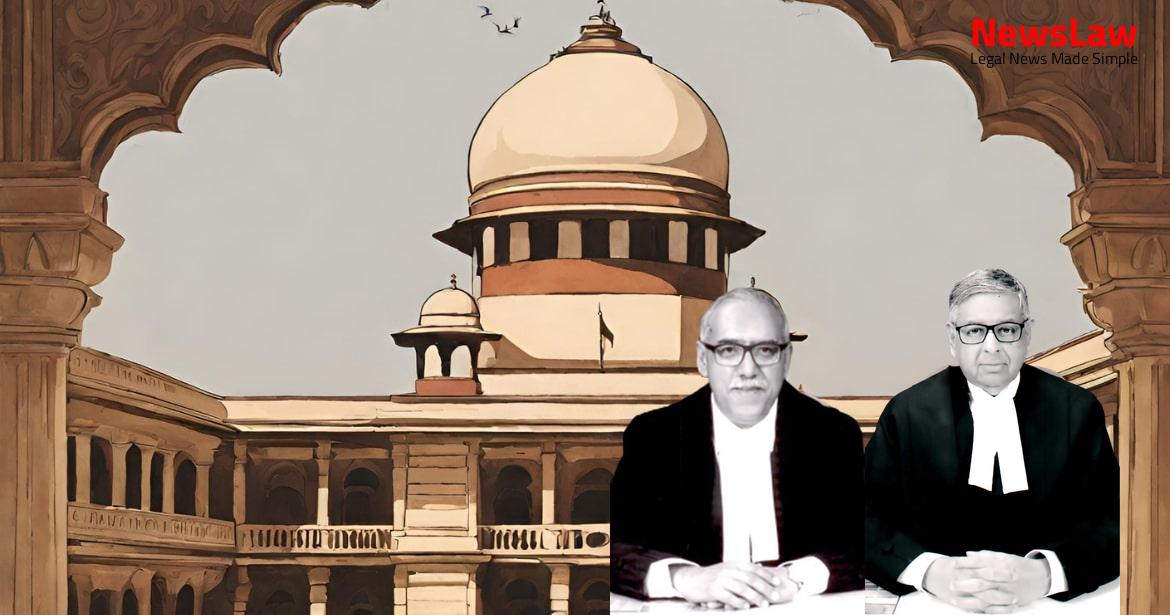In a significant legal development, the Supreme Court of India has delivered a crucial judgment regarding the reservation policy for shipbreaking plots at Alang-Sosiya Ship Recycling Yards. The case, involving the SC/ST Shipbreakers Association and the Gujarat Maritime Board, has far-reaching implications for the shipbreaking industry in the region. Stay informed with the latest updates on this ruling and its impact on the Alang-Sosiya Ship Recycling Yards.
Facts
- The impugned tender issued by the Gujarat Maritime Board (GMB) for 8 plots at Alang-Sosiya Ship Recycling Yards in February 2018 is quashed and set aside.
- GMB is directed to reserve 7% of plots for SC Category and 14% of plots for ST Category out of the total plots and not just the vacant ones as contended by GMB.
- Fresh tenders/bids should be invited by GMB in line with the judgment and order provided.
- The exercise of inviting fresh tenders must be completed within six months from the date of the judgment.
- Special Civil Application No 5509 of 2017 is allowed as per the reasons stated.
- GMB is instructed to hold auction for all vacant plots simultaneously and apply the directed reservation criteria for ST, SC, and General categories on all the plots, including the bigger and smaller ones.
- SC/ST Shipbreakers Association challenged the allocation of plots to SC and ST candidates.
- Claimed that reservation should be of the total number of plots available, not just those auctioned.
- High Court stayed the tender notice and ruled in favor of reserving all 8 plots for SC and ST candidates.
- High Court further directed all 20 plots, if taken as a block, to be reserved for SC and ST candidates.
- Tender notice was quashed by the High Court.
Also Read: Judgment on Contract Dispute: PSA Mumbai Investments PTE. Ltd. v. Jawaharlal Nehru Port Trust
Arguments
- Shri Naphade challenges the interpretation of the 2015 Regulations by the High Court.
- He argues that clause 5.4 must be read in conjunction with clauses 5.1 and 5.2.
- The earlier Regulation of 2006 had specific language about reservation ‘out of total plots’ which is not present in the current Regulation.
- Shri Naphade raises concerns about the auctioning of the plot licensed to him and the amalgamation with a neighboring plot.
- Shri Virk, representing the Gujarat Maritime Board, argues that the issue is academic and Shri Naphade’s client should not be allowed to file the special leave petition.
- The appellant’s argument about reservation of plots only out of the total plots was not accepted.
- The Board decided to follow the Gujarat High Court’s judgment regarding the reservation.
- The appellant’s delay in seeking relief was highlighted as a reason to not grant any relief.
- The argument presented was that deviating from the Gujarat High Court’s judgment could lead to incongruous results.
Also Read: Landmark Judgment: Abhyudaya Co-operative Bank Ltd. vs. Guravs
Analysis
- The expression ‘plots’ must be interpreted based on the context in which it is used.
- The Regulations mention specific categories of plots for ship recycling permissions.
- Terms and conditions from previous government resolutions are considered part of the Regulations.
- The definition of ‘plot’ in the Regulations includes specific dimensions and criteria for ship recycling.
- Reservation policy for ST and SC candidates is outlined in the Regulations.
- Certain percentages of plots are reserved for Co-operative Societies of SC and ST members.
- A new chapter inserted in the Regulations specifies allocation of newly developed or vacant plots for ship recycling.
- Specific upset price is set for tender-cum-auction of plots.
- There has been a change in the reservation policy for vacant plots in the new Regulations.
- High Court’s interpretation of ‘the plots’ in Clause 5.4 is discussed in relation to auctioned plots.
- Allocation for reserved categories of SC and ST candidates is specified.
- Comparison is made between the 1994 and 2006 Regulations regarding plot reservations.
- Reservation percentages for SC and ST categories are reiterated in the new Regulations.
- Contentions regarding reservations are left open for further proceedings.
- The 2015 Regulations are a departure from the earlier Regulations of 2006 and 1994.
- The judgment of the High Court is set aside.
- Reservation will continue for the purpose of auction of eight plots, as no challenge was raised by any General candidate.
- Argument against reservation of 21% of three vacant plots being impossible is dismissed based on the language of the 2015 Regulations.
- Board has the responsibility to implement reservation policy in a non-arbitrary manner for smaller number of vacant plots.
Also Read: Supreme Court Judgment: Review Petition in RPC Aspect Case
Decision
- Plots to be offered for ship recycling through Tender-cum-Auction procedure.
- Future tenders/auctions to follow the interpretation given in the judgment.
- The rule made absolute to the stated extent.
- No costs to be incurred by the parties.
- Appellant can pursue further legal proceedings.
- Protection granted in earlier order to continue for four weeks.
Case Title: M/S R K INDUSTRIES UNIT II LLP Vs. S.C/S.T SHIPBREAKERS ASSOCIATION
Case Number: C.A. No.-005609-005609 / 2019



